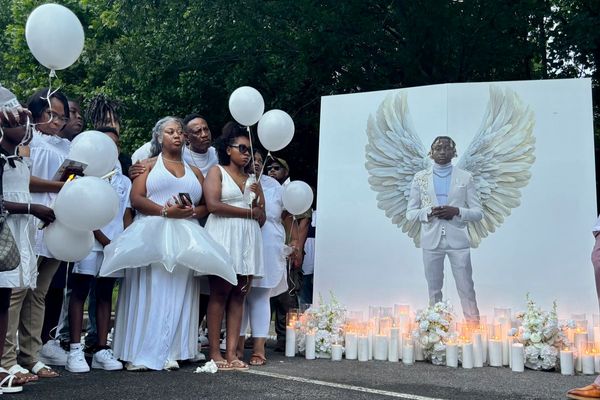
A new party led by farmers fighting cuts to nitrogen emissions looks set to be the big winner in key Dutch regional elections that could severely weaken the government and, analysts suggest, herald a Europe-wide backlash against the green transition.
The BoerBurgerBeweging (Farmer-Citizen Movement, or BBB) was launched in 2019 and has just one MP, but its people-against-the-elites platform has struck a chord with disaffected voters, and polls suggest it could finish as the second-largest or even the largest party in Wednesday’s vote.
The elections matter not only because under the Dutch system they determine who sits in the senate – without whose backing bills cannot become law – but because it is provincial governments that put national government goals into action.
In late May, when the provincial councils being voted for on Wednesday elect the 75 members of the upper house, it looks likely that the government will fall far short of a majority, forcing it to seek support from the left or far right. Both options may prove difficult, if not impossible.
The BBB’s popularity has surged amid government plans to buy farmers out and reduce livestock numbers by up to a third so as to help halve illegal nitrogen emission levels by 2030. It could become the largest party in five rural provinces, polls suggest.
The movement has also won support from some urban voters over the government’s decision, in the face of a severe housing crisis, to comply with court rulings and suspend all large construction projects because they also emit nitrogen.
Symbolised by a Dutch flag hanging upside down, the BBB has drawn global attention, with farmers’ protests – blockading highways, dumping manure on roads and rallying outside politicians’ houses – extensively covered by international media.

It has also attracted the public support of far-right and populist politicians including the Netherlands’ own anti-Islam firebrand Geert Wilders, France’s Marine Le Pen, ministers from Poland’s ruling Law and Justice party (PiS), and even Donald Trump.
Analysts say the movement – in the world’s second-biggest exporter of agricultural products – fits neatly into a populist frame that portrays climate action as a new form of tyranny by governments and global elites over ordinary, hard-working citizens whose legitimate concerns are largely being ignored.
“The populist focus until recently was on identity issues: immigration, the EU,” said Matthijs Rooduijn, a political scientist at the University of Amsterdam. “It has shifted to the green transition. Green issues are becoming a part of the culture wars.”
Catherine Fieschi, an expert on European populism and the far right, said she was surprised that opposition to green policies had taken so long to materialise. “The green transition is such an obvious wedge issue, especially in a period of inflation and food concerns,” she said.
Farmers in Germany, France and Belgium have protested against government-enforced emissions cuts and other climate-related agriculture sector reforms in recent months, arguing that their livelihoods are being sacrificed to the green transition.
But the Netherlands was “always a bit of a harbinger of things to come elsewhere”, Fieschi noted. “The BBB’s success is a sign that a green backlash is being fomented. It could become very disruptive in several countries, especially for coalitions.”
That certainly looks to be the case for the four-party coalition government headed by the Netherlands’ veteran conservative prime minister, Mark Rutte, which polls project will go backwards in Wednesday’s provincial ballot.

Although Rutte’s rightwing liberal VVD party looks on course to remain the largest single party in the senate, his centre-right CDA ally, traditionally the party of rural voters, is projected to see particularly heavy losses.
To pass any new legislation, the prime minister will need to win over parties to the right of the VVD, including the BBB and a small upstart national-conservative party, JA21, a breakaway from the much-diminished far-right Forum for Democracy (FvD).
Alternatively, Rutte could look to his left, where the Labour and GreenLeft parties combined are forecast to form the largest bloc of votes in the senate. Neither option, however, looks promising given the issues confronting the government.
On the environment, the right is fiercely opposed to emissions cuts, while the left has already threatened to block the government’s entire climate programme unless it goes much further, and faster, in speeding up the transition to renewables.
Another major issue, immigration and asylum, is likely to prove equally divisive. “Coalition tensions will increase,” Rooduijn said. “The VVD will be pulled right; the progressive coalition party, D66, will be pulled left. It could all get quite difficult.”
With a projected 12-14% of the vote, the BBB’s success could, some analysts have suggested, mark the beginning of the end for Rutte’s 13-year premiership – and serve as a test case for what may be awaiting other European governments.







